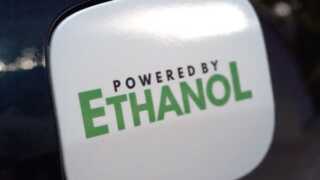Share via: Oil Ministry dubs the concerns around drastic mileage drop due to use of E20 petrol as baseless. Oil Ministry dubs the concerns around drastic mileage drop due to use of E20 petrol as baseless. View Personalised Offers on Check Offers Amid the social media chatter about the impact of 20 per cent ethanol-blended E20 petrol on vehicles, the Ministry of Petroleum and Natural Gas (MoPNG) has stated that concerns over a drastic drop in fuel efficiency are misplaced. The ministry has also added that the E20 fuel, in fact, offers improved acceleration. The ministry also said that doping petrol with 20 per cent ethanol extracted from sugarcane or maize is a national programme aimed at reducing vehicular emissions, which is being sought to be derailed by some by fomenting fear and confusion. In its statement, the ministry has listed out the benefits of using E20 petrol and said that using such a fuel does not impact the validity of insurance of vehicles in India. “Some seek to derail it by fomenting fear and confusion in the minds of car owners by selectively picking information and creating a false narrative that insurance companies will not cover car damage due to the use of E20 fuels. This fear-mongering is totally baseless and has been clarified by an insurance company whose tweet screenshot was deliberately misinterpreted to create fear and confusion. Usage of E20 fuel has no impact on the validity of insurance of vehicles in India,” the statement from the ministry said. India transitioned to E20 fuel. What’s the concern?Over the last few days, there has been a growing chatter on social media about the impact of using E20 petrol on vehicles. Some people have been saying that using E20 petrol leads to at least a seven per cent drop in fuel efficiency. Responding to this, the ministry said that the critiques suggesting that E20 causes a drastic reduction in fuel efficiency are misplaced. However, the ministry did not state the percentage drop in fuel efficiency. The social media posts have pointed out that the calorific value of ethanol is 29.7 as compared to 46.4 of petrol, and so the energy produced per litre is 65 per cent of petrol. Social media posts also cited the June 2021 Niti Aayog report to state that E20/E27 in E10 cars degrades the rubber and plastic components, corrodes metal, harms fuel systems, cuts mileage and may lead to the need for part upgrades. Earlier on August 4, the ministry said in a social media post, “Ethanol, being lower in energy density than petrol, results in a marginal decrease in mileage, estimated at 1-2 per cent for four-wheelers designed for E10 and calibrated for E20, and around 3–6 per cent in others.” It also said, “The efficiency drop (if any) in E10 vehicles has been marginal. For some manufacturers, vehicles have been E20 compatible from as far back as 2009. The question of any drop in fuel efficiency in such vehicles does not arise.” It also stated that vehicle mileage is influenced by a variety of factors beyond just fuel type. “These include driving habits, maintenance practices such as oil changes and air filter cleanliness, tyre pressure and alignment, and even air conditioning load,” the statement said. Further, the ministry said that concerns related to performance and mileage being raised now were anticipated as early as 2020 by the Government, and an Inter-Ministerial Committee (IMC) of the NITI Aayog examined them at length. “The use of E20 gives better acceleration, better ride quality and most importantly, lowered carbon emissions by approximately 30 per cent as compared to E10 fuel,” said the ministry, further adding that ethanol has a higher-octane number of 108.5 compared to petrol’s 84.4. “Vehicles tuned for E20 deliver better acceleration, which is a very important factor in city driving conditions. Additionally, ethanol’s higher heat of vaporisation reduces intake manifold temperatures, increasing air-fuel mixture density and boosting volumetric efficiency,” it said. Get insights into Upcoming Cars In India, Electric Vehicles, Upcoming Bikes in India and cutting-edge technology transforming the automotive landscape. First Published Date: 13 Aug 2025, 11:00 am IST
Source: hindustantimes.com






